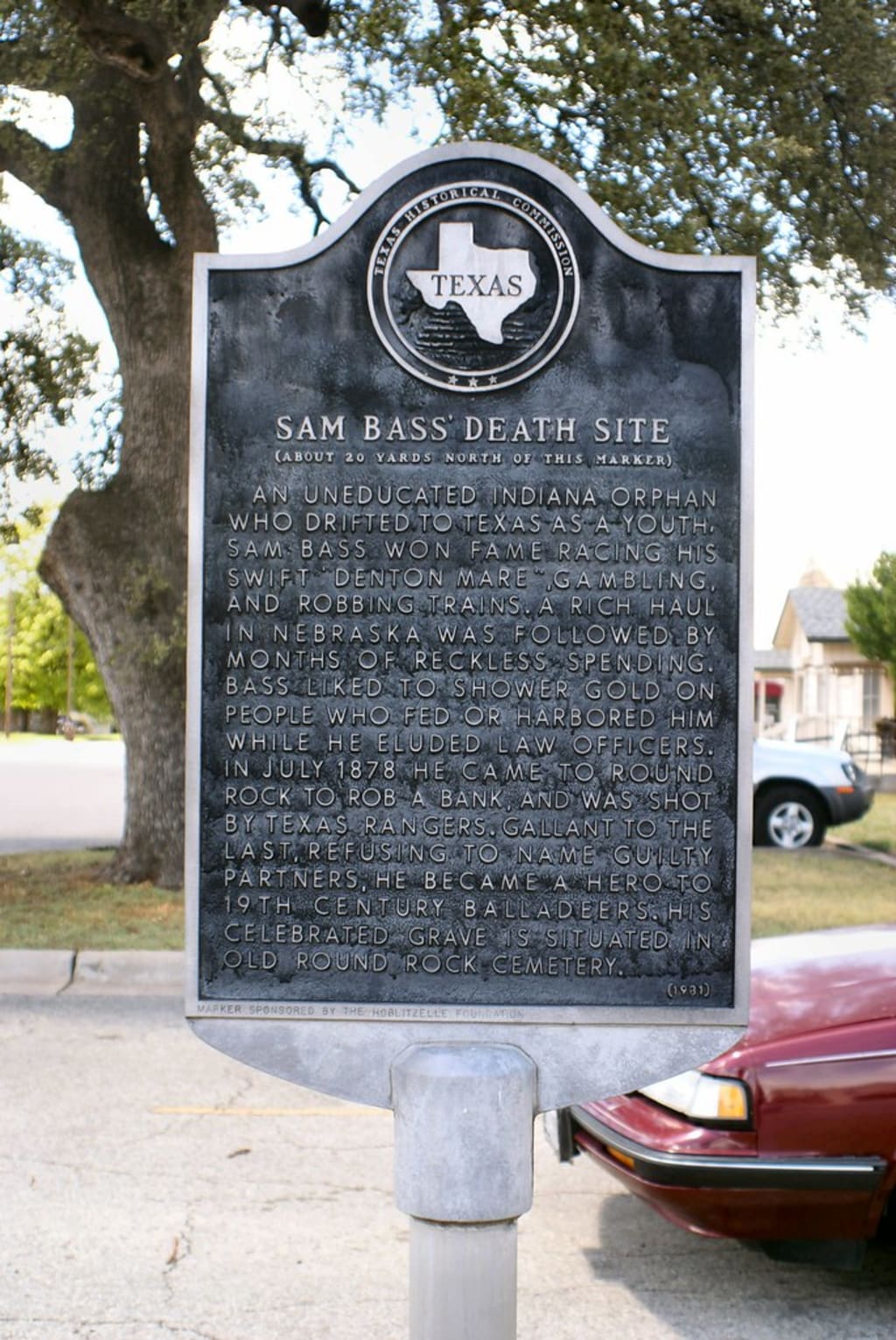Train Robbery at Big Springs, Nebraska
A daring raid by the Black Hill Bandits in 1877

On 18th September 1877 there was a daring raid on an express train at Big Springs, Nebraska. The gang got away with a fortune in gold coins, but their criminal career did not have much longer to run.
The scene of the crime
Big Springs, in western Nebraska, is today a community of no more than 400 people, and in 1877 it was even smaller. Its significance was that the Union Pacific Railroad passed through it. This had been completed in 1869 to link San Francisco to Iowa, from where trains could travel onward to the east coast. It was the first intercontinental railroad in America, allowing the products of California’s gold mines to be shipped in relative safety to the big cities of the east.
Big Springs was little more than a water stop on the railroad, with a rail station and a few houses.
North of Nebraska lay the Dakota Territory, where gold had been discovered in the Black Hills in 1874. This led to a new gold rush and conflict between prospectors, backed by the US Army, and local Lakota and Sioux tribespeople. The Battle of the Little Bighorn, which was a resounding defeat for the US Army under General George Custer, had taken place only a year before the Big Springs robbery.
In other words, this was a region in which men were prepared to take huge risks in order to get rich, and those risks included stepping beyond the confines of the law.
The Gang
There were six members of what became known as the Black Hills Bandits. The leaders were Sam Bass and Joel Collins. They had been hired by ranchers in Texas to drive cattle to Kansas, but decided that they could get better prices further north. Once in the Black Hills they tried their hand at gold prospecting, but this came to nothing and they lost their profits from the cattle sales in the gambling dens they found in Dakota.
Unable to return empty-handed to Texas, they turned to crime, aided by four other recruits named Jack Davies, Bill Heffridge, Jim Berry and Tom Nixon. The crime they had in mind was highway robbery of stagecoaches. However, this “trade” produced smaller rewards than they had hoped for. Holding up a train on the Union Pacific, however, seemed to offer much greater profits, given that trains carried far more passengers than stagecoaches, and they were soon to be proved correct.
The Raid
It was simplicity itself to cut the telegraph wires leading to the station at Big Springs and force the station agent, William Bradford, to set the signal to red so that a train bound for New York from San Francisco was brought to a halt.
Having robbed the passengers of their valuables, the gang found the mail car which had a small safe containing about $450. There was a larger safe that they were unable to open, but – not in the safe - were three crates that contained something they had never expected to find.
This was a consignment of “double eagle” gold coins that were being transported to New York from the San Francisco Mint. These had a face value of $60,000. Their loss at Big Springs to the Black Hills Bandits made the robbery the biggest in the history of the Union Pacific.
After the Raid
The gang deduced – perfectly correctly – that a robbery of this size would bring every law enforcement officer in the region hot on their trail, and decided that their best bet would be to spilt up into three pairs, having shared the loot between them, and head off in different directions.
Joel Collins and Bill Heffridge got as far as Buffalo Station, Kansas, where they were unfortunate enough to run into a small Army detachment who happened to be in the same town. When the pair was recognized they were killed in a shootout.
Jim Berry headed back to his home town of Mexico, Missouri, accompanied by Tom Nixon. They were tracked down by law enforcement agents and a gunfight ensued in which Berry was wounded, dying two days later. Nixon got away and it is possible that he escaped to Canada.
Sam Bass and Jack Davis headed south to Texas in a horse-drawn buggy, disguised as farmers. Davis had the good sense to carry on travelling and almost certainly ended up in Mexico. However, Sam Bass had other ideas.
The End of Sam Bass
Sam Bass was not only a hardened criminal but he was also addicted to gambling. His share of the Big Springs loot soon disappeared and he resorted to the only means he knew of making a living, namely robbing stagecoaches and trains.
He formed a new gang that committed at least four train robberies, leading to the formation of a unit of the Texas Rangers that had the sole purpose of tracking the gang down and dealing with them.
On 19th July 1878 Bass and two companions were apparently planning to raid the bank in Round Rock before heading for the Mexican border. However, they were apprehended by the local sheriff who was shot and killed. A furious gunfight broke out, involving the Texas Rangers, in which a local deputy sheriff and one of the gang were killed.
Sam Bass tried to escape on horseback but was shot in the back. He died from his injuries two days later.
The Big Springs raid thus led to the deaths of four of the original gang members, with only two of them being able to profit from their ill-gotten gains.
About the Creator
John Welford
I am a retired librarian, having spent most of my career in academic and industrial libraries.
I write on a number of subjects and also write stories as a member of the "Hinckley Scribblers".






Comments
There are no comments for this story
Be the first to respond and start the conversation.